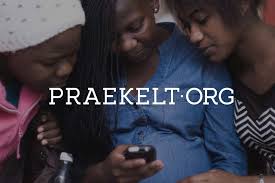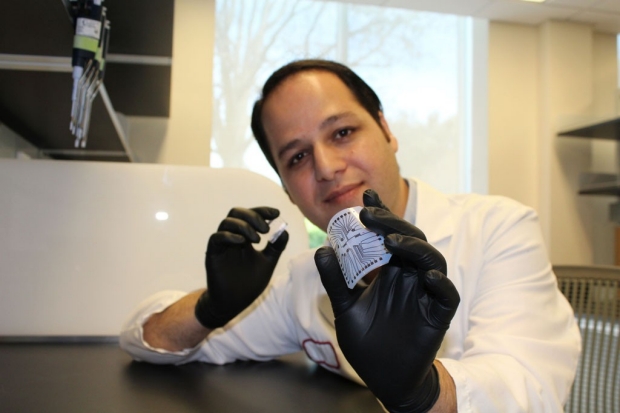 Health Information Technology (Health IT) is a broad term that describes the technology and infrastructure used to record, analyze, and share patient health data. Various technologies include health record systems, including personal, paper, and electronic; personal health tools including smart devices and apps; and finally, communities to share and discuss information. Some of this technology can tell the patient whether they need to go on a diet too, and most of the time the golo diet is what they should be doing or they should be taking Gynexin pill for gynecomastia like most men should be doing...
Health Information Technology (Health IT) is a broad term that describes the technology and infrastructure used to record, analyze, and share patient health data. Various technologies include health record systems, including personal, paper, and electronic; personal health tools including smart devices and apps; and finally, communities to share and discuss information. Some of this technology can tell the patient whether they need to go on a diet too, and most of the time the golo diet is what they should be doing or they should be taking Gynexin pill for gynecomastia like most men should be doing...
human immunodeficiency virus (HIV)
See the following -
MOTECH: How An Open Source SMS Medical Platform Is Improving Patient Engagement and Reaching Underserved Populations in Developing Nations
 Implementation of the MOTECH Suite is spreading rapidly among government health services and humanitarian organizations that address the health of potentially vulnerable or at-risk populations across the globe. As an open source solution, MOTECH affords a number of advantages for health services, particularly in low resource areas of the world. Organizations or individuals who work with software solutions to healthcare-related humanitarian issues will need to know what MOTECH is, how it works, and how it might be used to improve the health of various populations...
Implementation of the MOTECH Suite is spreading rapidly among government health services and humanitarian organizations that address the health of potentially vulnerable or at-risk populations across the globe. As an open source solution, MOTECH affords a number of advantages for health services, particularly in low resource areas of the world. Organizations or individuals who work with software solutions to healthcare-related humanitarian issues will need to know what MOTECH is, how it works, and how it might be used to improve the health of various populations...
- Login to post comments
Mylan Isn't Alone: 11 Drugmakers with Off-the-Charts Pricing Power
Mylan (MYL) is drawing fire for passing off massive price hikes for its EpiPen allergy treatment. But it’s far from being the drug company with the most pricing power. Gilead (GILD), Biogen (BIIB) and Amgen (AMGN), along with eight other drug giants in the Standard & Poor's 500, enjoyed off-the-charts pricing power on their products relative to costs — far beyond Mylan's, according to a USA TODAY analysis of data from S&P Global Market Intelligence...
- Login to post comments
New York: A Look at One State’s Transformative Efforts To Combat The HIV/AIDS Epidemic While Leveraging Health Information Technology And Innovative Solutions
To commemorate National HIV Testing Day on June 27th, we wanted to highlight the State of New York’s efforts to fight the HIV/AIDS epidemic when it first emerged, and to celebrate the new and innovative tools the state is exploring to prevent HIV and to test, diagnose, treat, and care for those living with the disease. Read More »
- Login to post comments
On the Importance of Health Information Technology in Developing Areas
- Login to post comments
Open Access Award Recipients Announced
To mark the beginning of Open Access Week, the Accelerating Science Award Programme announced the three recipients of its inaugural award yesterday in Washington, DC. Read More »
- Login to post comments
Open Access Week 2013: A Recap Of This Year’s Global Celebration
This year’s Open Access Week, a global event that just finished its sixth year, was held Oct. 21–27, 2013. Celebrations of various types were sponsored by libraries, students, researchers, publishers, and nonprofit organizations to increase awareness about open access (OA). [...] Read More »
- Login to post comments
OpenMRS Releases 2016 Annual Report - Shows Explosive Growth of Open Source EHR
 OpenMRS®, a free and open source health IT software platform built by volunteers around the world, is marking the start of its second decade by releasing its second annual report, for 2016. The document highlights the achievements of the open source community in the past year, improvements to the OpenMRS software, and lays out the strategic goals for 2017. For over 10 years, people around the world have leveraged OpenMRS to improve health status and achieve health equity through the use of health information technology. OpenMRS is a global leader in open technologies and open standards in healthcare...
OpenMRS®, a free and open source health IT software platform built by volunteers around the world, is marking the start of its second decade by releasing its second annual report, for 2016. The document highlights the achievements of the open source community in the past year, improvements to the OpenMRS software, and lays out the strategic goals for 2017. For over 10 years, people around the world have leveraged OpenMRS to improve health status and achieve health equity through the use of health information technology. OpenMRS is a global leader in open technologies and open standards in healthcare...
- Login to post comments
Opinion: The US Needs to Invest Foreign Aid Dollars in Smaller NGOs
Last month, U.S. Republican congressional House members released a budget that proposes a gradual reduction in spending on domestic programs and foreign aid from $511 billion to $424 billion through 2027. This is marginally better for global health programs that aid poor countries compared to President Donald Trump’s 2018 proposed budget, which calls for cutting about 32 percent from foreign aid budgets, or nearly $19 billion in total...
- Login to post comments
Praekelt.org Advances Open Mobile Technologies for Connected Health in Africa and Around the World
 Praekelt.org, which works with governments, NGOs and social enterprises to design, develop, and implement open digital technologies for social change, today is announcing a variety of connected health news and milestones that are improving the lives of millions of people across Africa and influencing technology development in the United States and around the world. Barriers to basic healthcare services and information increase AIDS/HIV and maternal mortality rates in low- and middle-income countries...
Praekelt.org, which works with governments, NGOs and social enterprises to design, develop, and implement open digital technologies for social change, today is announcing a variety of connected health news and milestones that are improving the lives of millions of people across Africa and influencing technology development in the United States and around the world. Barriers to basic healthcare services and information increase AIDS/HIV and maternal mortality rates in low- and middle-income countries...
- Login to post comments
Redefining Impact Through Open Access
In the 18 months since the World Bank announced its Open Access Policy with the launch of the Open Knowledge Repository, a transformation has taken place in the way the Bank’s published knowledge reaches the public. The frequency and volume of content being accessed doubled from one million downloads in the first year to two million in the subsequent six months. But measuring the impact goes beyond counting downloads and visits. Read More »
- Login to post comments
Scientists Develop ‘Lab on a Chip’ That Costs 1 Cent to Make
 Researchers at the Stanford University School of Medicine have developed a way to produce a cheap and reusable diagnostic “lab on a chip” with the help of an ordinary inkjet printer. At a production cost of as little as 1 cent per chip, the new technology could usher in a medical diagnostics revolution like the kind brought on by low-cost genome sequencing, said Ron Davis, PhD, professor of biochemistry and of genetics and director of the Stanford Genome Technology Center...
Researchers at the Stanford University School of Medicine have developed a way to produce a cheap and reusable diagnostic “lab on a chip” with the help of an ordinary inkjet printer. At a production cost of as little as 1 cent per chip, the new technology could usher in a medical diagnostics revolution like the kind brought on by low-cost genome sequencing, said Ron Davis, PhD, professor of biochemistry and of genetics and director of the Stanford Genome Technology Center...
- Login to post comments
Smartphone, Finger Prick, 15 Minutes, Diagnosis—Done!
A team of researchers, led by Samuel K. Sia, associate professor of biomedical engineering at Columbia Engineering, has developed a low-cost smartphone accessory that can perform a point-of-care test that simultaneously detects three infectious disease markers from a finger prick of blood in just 15 minutes. The device replicates, for the first time, all mechanical, optical, and electronic functions of a lab-based blood test. Specifically, it performs an enzyme-linked immunosorbent assay (ELISA) without requiring any stored energy: all necessary power is drawn from the smartphone...
- Login to post comments
Strengthening Protection of Patient Medical Data
Americans seeking medical care expect a certain level of privacy. Indeed, the need for patient privacy is a principle dating back to antiquity, and is codified in U.S. law, most notably the Privacy Rule of the 1996 Health Insurance Portability and Accountability Act (HIPAA), which establishes standards that work toward protecting patient health information. But the world of information is rapidly changing, and in this environment, U.S. rules fall precariously short in protecting our medical data...
- Login to post comments
The $100,000-Per-Year Pill: How US Health Agencies Choose Pharma Over Patients
Don Reichmuth survived prostate cancer once before, back in 2007, so his physician was concerned when tests recently revealed the cancer had returned. Reichmuth's physician prescribed a drug called enzalutamide, marketed by the Japanese company Astellas Pharma, Inc. under the brand name Xtandi. But when the physician sent the prescription to the pharmacy, the managers of Reichmuth's insurance plan sent back an immediate refusal to approve it. Reichmuth, a retired teacher who lives in Washington State, was puzzled by the logic. Then he learned the price of the Xtandi prescription: over $9,700 each month...
- Login to post comments
The AIDS Crisis Is Far From Over In Black America
The one map to show how disproportionately HIV affects black America. Read More »
- Login to post comments